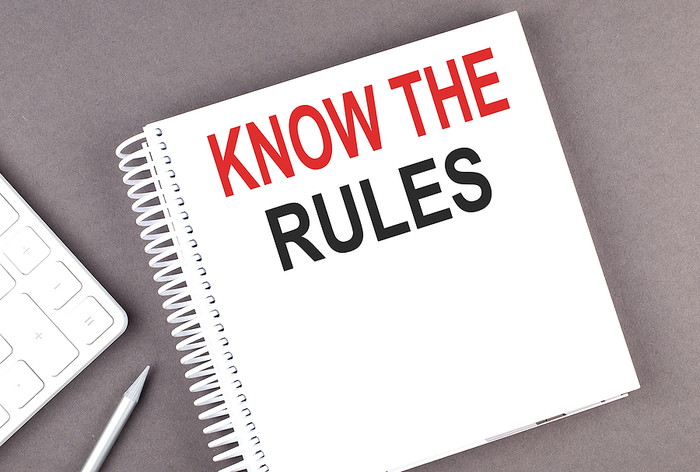 Online gambling has exploded in America ever since the Supreme Court struck down the federal law that outlawed it. States around the country have introduced their own gambling laws, taking sports betting out of the hands of organised crime and transforming it into a safe, fair and regulated industry.
Online gambling has exploded in America ever since the Supreme Court struck down the federal law that outlawed it. States around the country have introduced their own gambling laws, taking sports betting out of the hands of organised crime and transforming it into a safe, fair and regulated industry.
American businesses who are now offering sports betting look to Britain as an example of a country with a very well-regulated betting industry. They will find a lot of best practices to follow but also an industry with room to improve.
While the relationship between British bookmakers and punters is usually positive, there are some areas of contention. One of the main bugbears for some British punters is the perceived speed at which bookmakers start introducing limits on winning accounts.
The laws and regulations governing the ring fencing of bookmakers’ funds and ensuring bookies pay out on winning bets are watertight. Less watertight are the so-called ‘business decisions’ that bookies take every day on customers who they deem to be unprofitable. In this article we look at what bookmakers are mandated to do in terms of accepting your bets, what potential challenges you may face when trying to get a bet on and what you can do about it.
What Does the Law Say?

Talk about reform of the betting and gaming industry has rumbled on for years. The government, think tanks, charities, bookmakers and bettors have all had their say about issues such as affordability checks and safer gambling. The vast majority of the focus has been, rightly, on protecting vulnerable customers, and ensuring that unsuccessful players only suffer affordable losses.
Ensuring that people are kept safe from the potential dangers of gambling is vitally important but for the vast majority, gambling is a perfectly safe and enjoyable pastime. What’s more, whilst most people will lose money gambling in the long run, this is not the case for everyone and very little has been done about the power imbalance that exists between bookies and winning punters.
This has led to complaints from some gamblers about an apparent sense of unfairness in potentially introducing legislation which demands affordability checks and betting limits on individuals, while bookmakers can pick and choose what liability they take on.
Bookmakers are private companies offering a popular service in a very competitive marketplace. There are no laws that mandate the size, number, or type of bets that bookmakers must offer their customers. In the same way that a shop, bar or restaurant is not compelled to serve a customer (as long as the decision is not based on racial, sexual or other form of illegal discrimination), a bookie is not legally obliged to accept your bet.
In practice, bookmakers will quickly lose customers if they do not provide a comprehensive selection of markets, competitive prices and a set of rules which keep things fair for punters. However, bookmakers are under no legal obligation to accept bets from everyone and very much have carte blanche when it comes to deciding what bets and what stakes they will allow. Indeed, they can refuse to take bets from punters entirely at their own discretion with no justification whatsoever required.
Read the Terms and Conditions

One of the fundamentals of online betting is having a good grasp of the terms and conditions of the bookmaker or bookmakers you bet with. This advice applies when opening a new account, when taking advantage of a free bet or sign up offer and even when placing a bet in a market you haven’t used before.
A common example of people failing to understand the rules of a certain market is with cup matches. If a team wins a cup match in extra time the Twitter accounts and customer support channels of bookmakers are always full of punters claiming that their match odds bet should have been settled as a winner when in fact the rules of the market make it clear that match odds applies only to the 90 minute match (plus any injury time) and so contests which go to extra time are correctly settled as a draw.
While this isn’t news to those who have bet on football for any length of time, it illustrates that it can be difficult to stay abreast of all the terms and conditions for even a football match let alone for a whole betting site. That’s why it is important to read the terms and conditions of any bookmaker before you deposit any money and certainly before you start betting.
Should you go to the pleasure of checking out the Ts and Cs for any bookmaker and you’ll find their legal teams have included specific sections relating to the acceptance of bets. Take the Paddy Power terms for example which state, “Paddy Power can suspend or terminate your account at any time, either with or without cause, upon notice”. You’ll find this sort of language with all online bookmakers.
The bookies will argue – with some justification – that they need that sort of flexibility to be able to effectively cope with money laundering, problem gamblers and other such concerns. Some punters, however, suggest that these catch-all clauses are used to further increase the house edge by allowing bookies to ditch any customers who win regularly, try and use offers and promotions to tip the odds their way or hit the betting site when their odds are out of line.
Business Decisions Can be Bad for Punters

Bookmakers who are regulated by the United Kingdom Gambling Commission (UKGC) sign up to a code of conduct that is designed to protect punters. The Gambling Commission website state that operators who are regulated by them must, “comply with consumer protection laws and treat customers in a fair, open and transparent way.”
To the bookies’ credit, their terms and conditions are available for anybody to read at any time. Reading them makes it clear that the ultimate discretion lies with the bookies as to whether they close certain accounts. The counter argument is that suspending or terminating an account “either with or without cause” is the opposite of transparency and moreover, just because it is included within their terms does not make it necessarily fair.
Protecting Profits

There is an old adage that you never see a skint bookmaker. The trading teams of bookmakers work very hard to ensure that the odds they offer are competitive whilst ensuring the bookies come out on top in the long term.
That is fair enough. The bookies take on a lot of risk, they have to spend a lot of money on staff, technology and operations and are as entitled to make a profit as any other legitimate business. What doesn’t seem fair to many punters is when the bookies further push things in their favour.
Social media is full of the complaints of frustrated punters who have had their betting accounts flagged up by the bookies. In the most extreme cases, bookmakers have been known to close accounts or even to query the legitimacy of a big win. More commonly, bookies will place strict stake limits on the accounts of punters who have a track record of winning. For example, where an unlimited customer may be allowed up to £1,000 or even more on a bet, one whose account is flagged/restricted may be able to place just £50, or in extreme cases just a few pence in what is surely just an insultingly low limit.
The art of good betting is finding value. That is, a price which underestimates a selection’s chances of winning. Finding that edge is increasingly difficult as the bookmakers have large teams of traders to come up with the prices and use algorithms to ensure that their prices always have an overround. They have access to pretty much everything a punter does and then some, including time, experience and expertise.
Seasoned and/or well-informed punters can still find an edge in online betting prices. If you consistently find genuine value you will get the better of the bookie over time. The problem is that bookmakers are increasingly quick to jump on the accounts of profitable punters and limit their stakes to such an extent that it is essentially impossible to make any meaningful profit.
Complex tracking systems and the fact that everything is recorded online makes this process easier for bookmakers but it is nothing new. Casinos have been limiting (at the very least) blackjack card counters for years in a process known as ‘backing off’, and on-course bookmakers have long refused bets from well-known punters.
When punters complain that their accounts have been unfairly limited the bookmakers’ response is first to point out the relevant section of the terms and conditions that the customer has agreed to and second to say that the imposition of limits was part of a business decision. Sadly they will not engage with you, discuss the matter or negotiate. Once you get the dreaded limit/ban email (if you get one at all – sometimes you will just see that you can only bet a few quid on an event or your account is entirely closed) that is it.
While bookies are happy to pay out millions of pounds in winnings every week, they know that is more than balanced out by their takings from losing bets. That, in essence, is their business model. Anybody who threatens that balance is viewed as a threat, as unfair as that seems. They need to have far more losing customers than winning ones and anyone who looks like they have it in them to win regularly will see action taken.
Options When Your Account is Limited

When Betfair was founded in 2000, the traditional bookmakers launched a legal challenge. Their complaint was that by allowing individuals to both back and lay positions on sports markets Betfair was effectively bypassing the laws and regulations on who could operate as a bookmaker. The complaint was dismissed and betting exchanges have been a part of the online betting world ever since.
As the operators of betting exchanges make their money through a commission, it does not matter to them whether individual customers are winning or losing with their sports betting. This has made exchanges a natural home for professional gamblers, sports traders and others who have had their sports betting options closed off by the bookmakers.
The drawback for using betting exchanges is that you are at the mercy of your position being filled. Whereas a bookmaker will take on a certain amount of liability for even niche events and markets, betting exchanges need their customers to step in and take on that liability for themselves. While liquidity improves as the event moves closer to its start time, it is notoriously difficult to get a fair price on horse racing before the day of the race, for example.
Some also use the exchanges as a way to keep their bookies’ accounts open. It is possible to try and deliberately lose bets occasionally with a bookmaker – and thus lessen your chance of your account being flagged – and covering those loses on the betting exchanges. Be warned, this is a risky option if you don’t know what you are doing but some people swear by it.
Other things to consider include making sure not to use every betting offer available. Shrewd punters who take advantage of betting offers are some of the first to be flagged by the bookies. Similarly, punters who don’t go out of their way to find the best odds are less likely to be flagged.
Should Betting Sites Reject Bets?

Ultimately, the simple answer is that bookmakers do not need to accept your bets and they can reduce your maximum stake as they see fit. Nowadays much of this process is automated and so when you try and place a bet you will receive some form of error message. This may state that your bet cannot be accepted, or that the stake is too big.
Sometimes it will tell you on the slip what the maximum permitted bet is, whilst with some sites it is just trial and error and you will need to keep reducing your stake. If they will not accept your bet at all, the message may refer you to their customers services team. They will inform you that your account has been closed or in some way restricted.
Restrictions can take different forms but a stake limit is the most common one. Alternatively you may be barred from certain markets, specific or all offers and promotions, or from the sportsbook entirely but still be allowed to use the casino, bingo and poker suites for example.
Whilst certain politicians have tried to campaign for bookies to be required to accept a minimum stake, there has been little progress in this regard. Ultimately there is little will to look after winning punters, even if it does potentially leave the balance very much in favour of the bookies. Whether this is fair or not is a matter for debate.
On the one hand seeming to only want unsuccessful bettors but turning people away as soon as they show any aptitude seems inherently unfair. On the other hand, if the bookies had no powers to prevent or limit the behaviour of a small number of professionals and advantage players, there is every chance they would not be able to exist.
